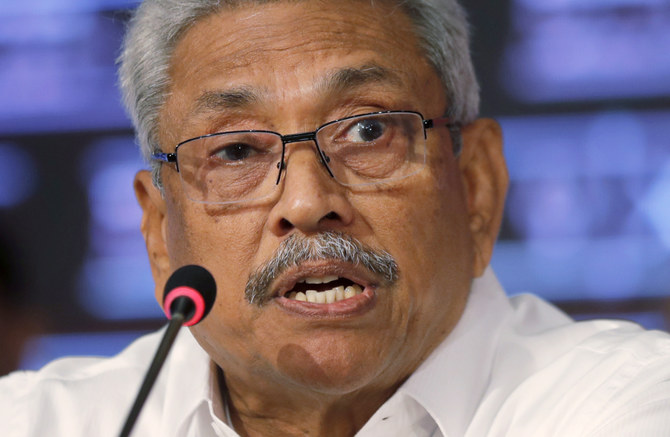COLOMBO, Sri Lanka – A rights group gathering evidence on Sri Lanka’s alleged rights violations said it filed a criminal complaint with Singapore’s Attorney General, seeking to arrest an ex-Sri Lankan president for his role in war crimes allegedly committed during the island nation’s civil war, which ended more than a decade ago.
Lawyers from the International Truth and Justice Project — an evidence-gathering organization run by a South African nonprofit foundation — filed the complaint on Sunday, requesting the immediate arrest of ex-Sri Lankan president Gotabaya Rajapaksa for his role as secretary of defense during Sri Lanka’s civil war, which ended in 2009.
Rajapaksa is thought to be in Singapore after departing Sri Lanka following months of enormous protests against him over the country’s economic collapse. After enraged Sri Lankan demonstrators stormed his mansion in mid-July, Rajapaksa departed the country. He flew to Singapore after seeing the nearby Maldives.
“The 63-page complaint contends that Rajapaksa committed severe breaches of the Geneva Conventions during the civil war in 2009 when he was secretary of defense, and that these are crimes subject to domestic prosecution in Singapore under universal jurisdiction,” according to the group.
Rajapaksa was one of the most influential figures in his elder brother President Mahinda Rajapaksa’s administration, serving as Secretary to the Ministry of Defense from 2005 to 2015.
He was elected President of Sri Lanka in 2019 but was forced to escape in mid-July due to popular outrage over his failure to manage an extraordinary economic crisis that has severely impacted the livelihoods of many Sri Lankans.
“The economic meltdown has seen the government collapse but the crisis in Sri Lanka is really linked to structural impunity for serious international crimes going back three decades or more,” said the ITJP’s executive director, Yasmin Sooka. “This complaint recognizes that it’s not just about corruption and economic mismanagement but also accountability for mass atrocity crimes,” she added.
According to cautious United Nations estimates, the civil war in Sri Lanka killed 100,000 people. The actual figure is thought to be significantly higher. According to a UN panel of experts, at least 40,000 ethnic minority Tamil civilians were slain in the final months of the battle.
Tamil Tiger insurgents tried to establish an independent state for Tamil ethnic minorities.
After Rajapaksa fled the country, the prime minister, Ranil Wickremesinghe, took over as acting president, and legislators in Sri Lanka’s 225-member parliament voted Wickremesinghe to serve as president for the remainder of Rajapaksa’s term last week. Wickremesinghe was sworn in as President last week.
For months, Sri Lankans have flocked to the streets to demand that their top leaders stand down and accept responsibility for the economic catastrophe that has left the country’s 22 million inhabitants facing shortages of essentials like as medicine, petrol, and food.
Protesters have targeted Rajapaksa’s family, but Wickremesinghe has also come under fire as a perceived Rajapaksa surrogate. Protesters accuse Rajapaksa and his powerful family of siphoning money from government coffers and hastening the country’s demise through poor economic management. Although the family has disputed the claims of corruption, the former president has admitted that some of his policies contributed to Sri Lanka’s crisis.
The political upheaval has jeopardized efforts to obtain IMF assistance. Nonetheless, Wickremesinghe stated earlier this week that bailout talks were nearing completion.
The IMF’s leader, Kristalina Georgieva, told the Japanese financial magazine Nikkei Asia this week that the IMF expects to reach an agreement “as soon as feasible.”
Source: AP


